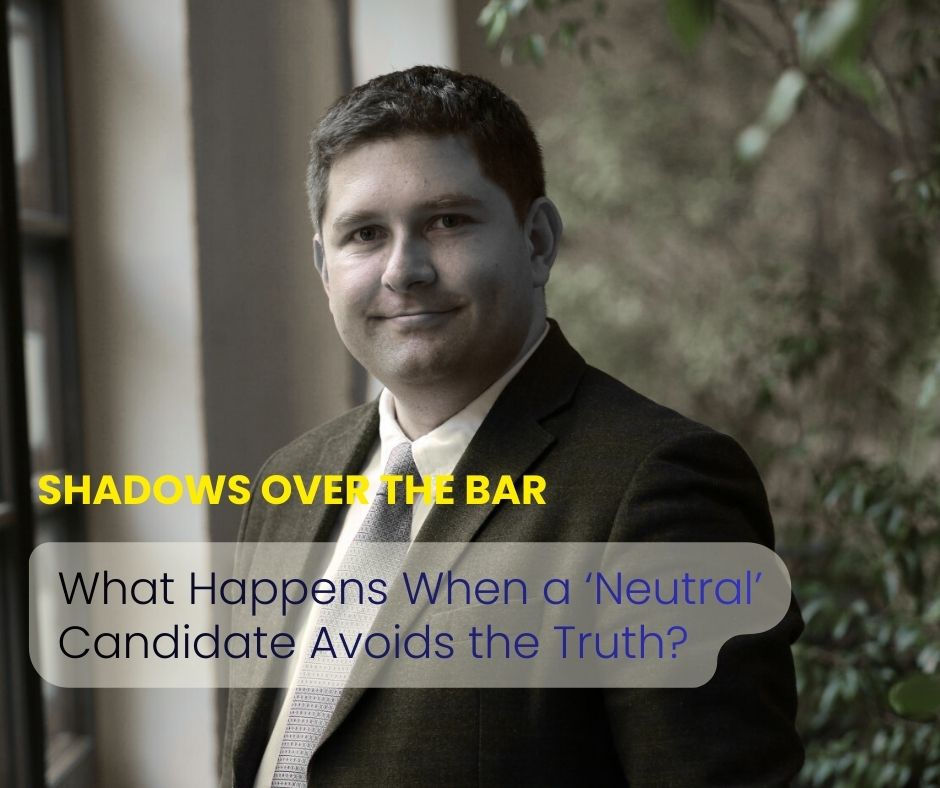Papuashvili calls Ambassador Fischer a “director of political intimidation”
- Redaktion| Tiflis24

- May 20, 2025
- 4 min read
Updated: May 21, 2025
In a country where courts are increasingly becoming platforms for political power, the biggest scandal no longer seems to be the lack of judicial independence—but rather an ambassador who is simply watching. Shalva Papuashvili, Speaker of the Georgian Parliament , has once again managed to turn reality on its head: German Ambassador Peter Fischer is being declared the problem—not the judges who hand down rulings in favor of the government.
The starting point for the renewed controversy was Fischer's presence at the trial against Mzia Amaghlobeli , journalist and founder of the anti-government portals Batumelebi and Netgazeti . Fischer followed the trial together with his Swedish and Estonian colleagues, as well as Austrian MEP Lena Schilling —an act of diplomatic observation common in democratic states.
Not so in Georgia.
“Artistic Methods” and Big Brothers
Papuashvili took Fischer's mere presence as an opportunity to make a savage accusation on Facebook:
"It is striking that the German ambassador has recently been using artistic methods to convey certain messages and tells us what he actually wants to say through the chosen background."
What does he mean by that? Fischer was filmed giving an interview in front of a banner reading "Freedom for Mzia." Papuashvili calls this a clear case of political interference:
"This was not an observation of the trial, but a deliberate demonstration to the judge – to show her that 'Big Brother' was watching and expecting a certain decision."
And further:
“The fact that an ambassador who does not understand the local language and does not have a translation is observing a trial shows that he is not concerned with the procedural details, but with psychological pressure.”
A grotesque perversion of diplomatic practice. It's not the government, which selects judges based on loyalty, that exerts pressure—but Western observers who make their presence felt.
Mzia Amaghlobeli: Journalist in the dock
The real scandal, however, lies not with Fischer, but in the Batumi courtroom. Mzia Amaghlobeli is on trial there – allegedly for slapping the police chief. An incident for which, according to the indictment, she could face up to seven years in prison . The evidence? Nonexistent. The medical expert clearly stated:
“There are no objective signs of injury to the alleged victim.”
No bruises, no scratches – just subjective pain. When asked by the defense whether the police chief might be feigning, the expert gave an evasive answer. Redness was "not an objective indication of injury" and therefore "not within the scope of medical assessment competence."
At the same time, Amaghlobeli himself was found to have bruises on his shoulder . The police officer, however, appeared to be uninjured.
Lena Schilling: “Political persecution, no rule of law”
The Austrian MEP Lena Schilling , who travelled there especially, was shocked after the hearing:
"What I saw in the courtroom today was not the rule of law. Mzia Amaghlobeli is not being charged because she broke the law—but because she is a voice for the entire protest movement."
For Schilling, the case is a test for Georgia's European path . In February, the European Parliament passed a resolution demanding Amaghlobeli's immediate release and imposing sanctions against elites associated with "Georgian Dream."
The “Slave” Controversy: Analysis or Insult?
Papuashvili was particularly outraged by Fischer's appearance in front of a banner reading "მონა"—slave . He called this a "denial of human dignity" and evidence of the brutalization of opposition groups' language:
"When the government representative is called a 'slave,' he is deprived of his human dignity and thereby dehumanized. This legitimizes hatred."
But here Papuashvili is fundamentally mistaken—or at least pretends to be. The term "slaves of the judiciary" is not a personal derogation, but a political observation. When judges deliver rulings in the government's favor, when the so-called "judicial clan"—consisting of figures like Murusidze , Chinchaladze, and Shengelia —controls the judiciary, then "slave" describes not an identity but a structural relationship: powerlessness in the face of the system, subordination to party interests.
According to Transparency International Georgia, 53% of the population believe that the judiciary is politically controlled. 94% of those who believe in the existence of a "judge clan" demand that this group be removed. And the US? They have long since imposed sanctions on Georgian judges. So, anyone talking about human dignity here should first start with those whose rights are violated by politicized rulings.
Vetting: The word Papuashvili fears
Moldova and Ukraine have introduced so-called vetting – an integrity check for judges that examines corruption, assets, and loyalties. The EU Commission is calling for a similar procedure in Georgia. The Georgian government is blocking it. Why, I wonder?
Maia Bakradze , a former judge at the Tbilisi Court of Appeal, recently declared that vetting is currently the "only realistic solution" to reform the judiciary from within. But vetting requires political will – and that is lacking. A dependent judiciary ensures the retention of power. An independent judiciary, on the other hand, could one day also judge Shalva Papuashvili .
Fischer is not the problem – he is the symptom
It's not Peter Fischer who is damaging the Georgian justice system—but a system that defames any form of oversight as interference. Papuashvili's now resorting to moral outrage demonstrates only one thing: how much the mere presence of a witness bothers him.
The real attack on dignity takes place within the system – where judgments are made not according to law and order, but according to political expediency.
Fischer didn't pass judgment. He just listened. And that's apparently already too much for those who have grown accustomed to silence.
Photo credit: Radiotavisupleba





Comments